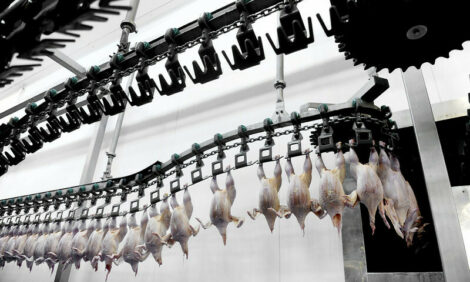



Russia Vows to Step Up Fight against ASF
ANALYSIS - Since the beginning of the year there have been 57 reported outbreaks of African swine fever in Russia centred on seven major regions, writes Chris Harris.The severity of the outbreaks and the gathering momentum of the disease in Russia was the focus of a special teleconference last week headed by the Agriculture Minister Nikolai Fyodorov.
In opening the meeting, Nikolai Fyodorov said that the African swine fever situation was of great concern.
"I ask all to mobilise forces to fight the infection that causes serious damage to the domestic pig industry," he said.
In analysing the outbreaks region by region, he said that according to the Veterinary Department, from the beginning of 2012, there were 57 outbreaks of ASF in seven regions of the country: 23 - in the Krasnodar region, 19 - in the Tver region, 11 - in the Volgograd region, as well as isolated cases in the Republic of Karelia and Kalmykia, Rostov and Yaroslavl regions.
From 19 June to 8 September Mr Fyodorov said the situation with the spread of ASF significantly worsened.
During this time there was 50 cases in five regions. The Krasnodar region had 20 cases, the Tver region - 19, the Volgograd region - nine and one each in the Rostov and Yaroslavl regions.
Out of these cases ASF had been eliminated in two small holding, leaving 48 sites of infection remaining.
The meeting also heard the main reasons why African Swine Fever is continuing to spread.
Despite a ban, private small-holdings and small-scale farms continue to feed pigs waste that has not been cooked containing raw products from slaughter pigs and wild boar.
The agriculture minister said that a notable risk factor was that the owners and managers of businesses still underestimated the danger of ASF and the continue to act in contravention to the standards set down in the industrial biological protection zones.
The minister asked what measures are being taken by the region al authorities to counter the law breaking and he called on the heads of agricultural agencies to address the problem.
In the Krasnodar region on the outskirts of centre of the infection and on the perimeters of the first and second areas that are under threat from the disease, fully equipped security and quarantine stations have been set up, the movement of pigs has been banned and also the movement of products of animal origin.
A policy of total liquidation in an ASF region has seen about 160,000 pigs destroyed.
At present, the region will be under quarantine until 15 October. The quarantine was introduced in mid-August.
Similar measures have been taken in the Tver, Volgograd, Rostov and Yaroslavl regions.
Nikolai Fyodorov recommended that the experience of the Krasnodar region, where farms and small holders who have broken the anti-ASF have been penalised, should be studied.
"This is an example of the state approach, where the problem has taken a dangerous turn. Measures have been enforced, but they have ben effective in terms of the protection of the population," he said.
Rosselkhoznadzor head Sergei Dankvert said that the spread of infection depends on the timely action by the authorities.
There is a conviction that the veterinary services in the region need to work closely with the farms, to help in determine the number of wild boars in each area.
Nikolai Fyodorov concluded: "Once again I draw the attention of leaders at all levels to the fact that our task is no small matter. As a popular saying goes: 'One slight slip will bring big trouble'.
"When it comes to food and food security, there is no room for error.
"Accordingly, we must once again consider carefully each step of all the complex anti-epizootic measures and also review those personal relationship that are producing serious problems.
"We have to take more effective action on the front line with African Swine Fever."






